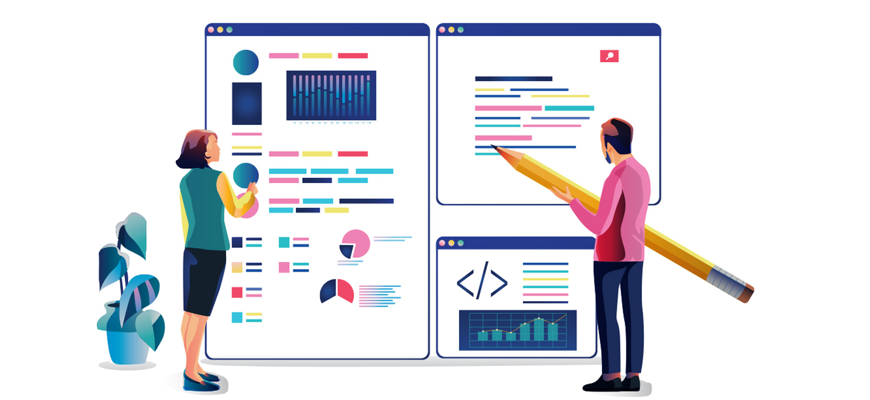Legal tech: a focus on skills

If you had been told three years ago that having meetings with clients or colleagues online rather than in person would be routine, and that you would rarely be using cash because you would be making contactless payments, you might well have raised an eyebrow.
Things have changed, and the legal sector has evolved as much as any other. Whether in the form of electronic signatures, online hearings or the online submission of documents, the use of technology to solve the problems created by the pandemic has advanced at a rapid pace.
The legal sector advances
By and large, we have all adopted these new technologies: a few false starts, quite a lot of “You’re on mute”, but, in general, we have adapted. While the perception has been that the legal sector has been slow to embrace technology, the evidence shows that the profession continues to invest in technology (legal or otherwise).
For that investment to be fully realised, there must be a parallel commitment to technology training. Practitioners need both to have an understanding of the latest system being introduced, but also, given how fundamental technology is to the delivery of legal services, a more general understanding of how the technology works, its capabilities and limitations.
Ultimately, we use technology to provide solutions to those perennial questions: “How can we make it a better experience for the client?”, or “How can we be more efficient in the way we work?” Having a better understanding of what technology can offer, and how it works for us, gives us a greater range of options when considering how best to answer these questions.
Learning goals
Those in the legal profession, and those hoping to join it, will have to learn how to use technology to help them do routine or predictable tasks, and also consider how they can make themselves more effective when it comes to doing less predictable ones (e.g. using project management methodologies etc). This shouldn’t be scary, but, in reality, we know that it can be a little daunting.
It’s never comfortable when a colleague is talking about some aspect of legal technology and you have the feeling that you should probably understand it slightly better than you do. In the diverse and fast-moving field of legal technology, with no end of buzzwords, alien terms, and potential for information overload, it is easy to get lost. And the risk is that, rather than embrace something that might make your life or your client’s life easier, you shy away from it and stick to the systems and processes that you are familiar with.
Even before the pandemic, great strides were being made in increasing tech skills in the legal profession. We have seen the emergence of new legal tech roles such as legal process engineer, legal analyst and legal technologist. We believe that this trend will continue and intensify over the coming years.
Similarly, the introduction of legal technology training has become more widespread. Several undergraduate LLB courses have introduced modules in legal technology, so when students become trainees, they are coming to law firms and in-house legal teams with at least a basic understanding of this area. Most DPLP courses now have a legal technology element either as a mandatory part of the course or as an elective. We are optimistic that the generation of digital natives who are qualifying now are well placed to master similar seismic changes over the coming decades.
For those already in practice, there are increasing and varying technology training options available. How many in the profession have undertaken a technology course is less certain. It is a challenge for senior management to determine what training is best to ensure greater tech skills among their colleagues – different colleagues may need different types or levels of training. It is not just a question of who in the firm should attend, but also what level the training should be pitched at.
People matter most
There’s a lot of chatter about “Do lawyers need to code?” The answer is – for the vast majority of lawyers – no. Ultimately, a focus on really understanding what the people at your organisation do and how they work (and how they would like to work), and then on the processes they operate, before focusing on technology will be far more fruitful. It is more important that all employees have a more general understanding of legal technology.
It is likely that everyone will need to improve a little in terms of their technology skills, but a small band of professionals will go further and have hybrid careers where they span the divide between law and technology more obviously – for instance, helping to build systems in the organisation so legal advice can be delivered in different, quicker, more efficient ways. For those individuals our accredited legal technologist status may well be of interest – this is a growing band and we hope will grow more.
People will always remain at the heart of a solicitor’s business. Technology at its best can only complement the skills that solicitors and their staff can offer their clients. It is solicitors who provide advice to people at crucial times in their lives. It is solicitors who guide companies faced with opportunities or difficulties. But if technology can improve the service you offer your clients, or free up your time so you can concentrate on the advice you provide, so much the better.
Legal tech – at your own pace
Recognising the challenges of legaltech training, the Society has teamed up with Hey Legal to introduce a two-hour Legal Tech for All Lawyers Foundation Course, a new online offering designed to equip solicitors with a basic level of understanding across a wide range of legal tech concepts.
Hosted by Sam Moore, the Society’s first accredited legal technologist, the course will start at the beginning by asking high-level questions such as “What is legal technology?”, and “How will this change the way I operate?”, before moving on to more specific questions like “What is document automation?”, “Who are the biggest players in the legal tech field?”, and “What on earth is a hackathon?”! The goal of the course is to provide you with baseline knowledge. It is intentionally designed to be flexible, with each course module split into 15-minute micro-lessons, allowing attendees to complete them whenever it suits.
Find out more information about the course by emailing the CPD team.
Regulars
Perspectives
Features
Briefings
- Civil court: Broad sweep of the sheriff court
- Employment: Support through the cost of living crisis
- Family: Case management rules made for 2023
- Human rights: Protest as a defence to vandalism?
- Pensions: TPR issues auto-enrolment warning
- Property: New lease of life for commercial lets
- In-house: Advisers or leaders?







